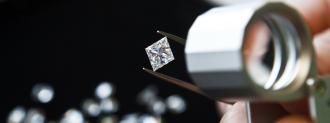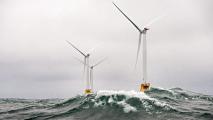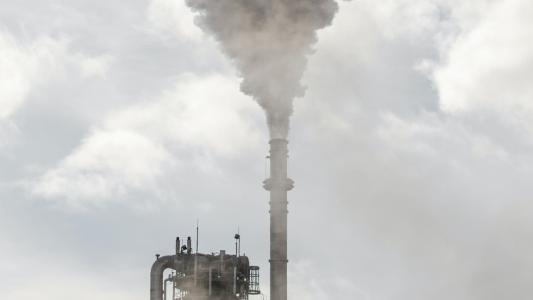The Danish jeweler Pandora has announced it will only use lab-created diamonds in its products, making it the first major player in the industry to totally abandon mined diamonds.
Blood diamonds: Diamonds are carbon atoms that have been forced into a crystal structure by pressure and heat. This takes billions of years and only happens about 100 miles below Earth’s surface, meaning all natural diamonds have to be mined.
While some diamond mines operate ethically, many are plagued by reports of child labor, human rights abuses, and environmental destruction. The resource is also sometimes extracted by governments or insurgent groups to fund wars — the so-called conflict diamonds or blood diamonds.
The alternative: Lab-created diamonds are physically and optically identical to mined diamonds — the only difference is how they’re made.
The technology Pandora will use to make its diamonds is called Chemical Vapor Deposition, and it involves placing a sliver of a lab-created diamond in a vacuum chamber and then growing it into a new diamond using heat and plasma.
This process takes less than a month (compared to the billions of years it takes for a natural diamond to form) and allows Pandora to produce diamonds at a third of the cost.
Sustainable bling: Pandora’s CVD process is certified carbon-neutral, with more than 60% of the energy powering it coming from renewable sources. By 2022, Pandora expects its lab-created diamonds to be made using 100% renewable energy.
“We want to become a low-carbon business,” Pandora CEO Alexander Lacik told BBC News. “I have four children. I’m leaving this Earth one day. I hope I can leave it in a better shape than maybe what we’ve kind of created in the last 50 years or so.”
The details: Pandora’s first collection featuring lab-created diamonds, Pandora Brilliance, will include necklaces, rings, and other types of jewelry.
Lab-created diamonds can form in weeks. Natural ones need billions of years.
Sales will begin exclusively in the U.K. on May 6, and Pandora plans to go global with the collection in 2022.
While it will sell existing products featuring mined diamonds, it will no longer make new ones.
Why it matters: Lab-created diamonds are seeing a steady increase in popularity, but naturally sourced diamonds still dominate, and most major jewelers still carry them.
No company sells more jewelry than Pandora, though, so its decision to stop selling mined diamonds could accelerate the transition away from the controversial gems.
We’d love to hear from you! If you have a comment about this article or if you have a tip for a future Freethink story, please email us at [email protected].






